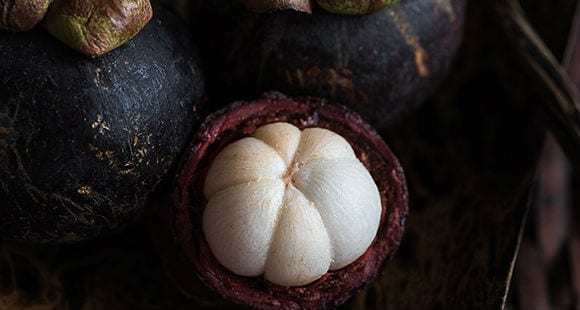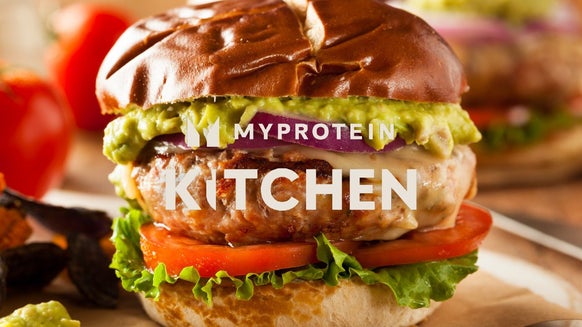Garcinia Cambogia | Does It Work Or Is It a Weight Loss lie?

Dr Mehmet Oz is a Turkish-American TV personality who happens to also be a cardiothoracic surgeon, famous in the US as much for his appearances on Larry King Live and The Oprah Winfrey Show, as he is for editorials in The New England Journal of Medicine.
Mehmet has also loudly broadcast his belief in a new and controversial weight loss supplement, Garcinia Cambogia (G.Cambogia).
Described by Dr Oz has “the holy grail of weight loss” (1). However, others have described it as “One of Dr Oz’s three biggest weight loss lies” (2). This article will hopefully give some perspective and insight into the truth!
Garcinia Cambogia | The Fruit
Also known as the Malabar tamarind, the fruit rind of the Garcinia gummi-gutta is usually used as flavouring for fish curries in Asia.

The fruit looks similar to a pumpkin, is the size of a kiwi fruit and can be yellow, orange or red when ripe.
It has a variety of other uses, including the prep of a tonic high in vitamin C.
Garcinia Cambogia | The Supplement

Supplements labelled as
a) The primary ingredient of Hydroxycitric acid (HCA - known for weight loss)
or
b) A crude extract which also includes various other organic compounds building blocks
HCA | Primary Weight Loss Ingredient
HCA, the main organic acid compound, has been singled out as the key component of Garcinia Cambogia for weight loss (4). It has been suggested that HCA exhibits anti-obesity activity, notably including:
? Reduced food intake.
? Reduced fat gain.
The fruit contains 10-30% HCA which can be isolated individually, as a salt or as a lactone (HCAL) (5). Supplements are available with HCA in the form of its various salts (e.g. calcium, magnesium or potassium) (6).
The mechanisms behind these changes are attributed to increased appetite suppression, caused by regulating levels of serotonin in the blood to increase satiety (hunger “fullness”) (7).
Secondly, reductions in body fat are accredited to increased fat oxidation (metabolic fat burning) and decreased fatty tissue synthesis (lipogenesis) (8).
HCA | The Appetite Suppressant
Animal model studies with rats and mice show promising evidence for the use of HCAL compounds on appetite suppression. A dose dependent response was seen over a course of 8 weeks administration, with mice showing a significant reduction in weight gain due to reduction of natural food intake (9).
Another study identified that the administration of HCA stopped the uptake of the neurotransmitter serotonin in the brains of rats, which showed the potential use of this compound to control appetite (as well as potential use for serotonin-deficit conditions such as depression) (10).
And humans?... One study (11) examined the effects of an 8 week trial of 2,400mg daily HCA on healthy volunteers. This piece of work showed:
A 4% reduction of food intake
? A 6.3% reduction in BMI - both over the two month trial!
HCA | Anti-Obesity Activity

It is suggested that HCA in its isolated form can:
? Reduce levels of body fat through increased metabolic fat burning and decreased fat synthesis.
? Subsequently reduces body weight (12-13).
The way that HCA triggers these changes is through inhibition an enzyme called ATP-citrate lyase, which coverts citrate into acetyl-CoA, which is the first step in fatty acid development (14-15). This enzyme also plays an important role in the fat tissue development state which occurs by eating too many carbohydrates (16).
Therefore, inhibition of this enzyme should also

In human subjects there is good evidence available to support the benefits described of HCA supplementation.
For example, daily consumption of 300mg HCA for 2 weeks was found to reduce body weight and 24 hour energy intake, without changing appetite, mood or taste perception (17).
Other studies show similar benefits. In a group of women only, short term use of HCA 250mg/ day for 5 days:
? Increased fat metabolism
? Enhanced exercise performance (18). In another study on obese individuals (19) it was seen that doses from 2800mg/day to 5600mg/ day were effective for weight management.
A further study identified that a 500mg dose daily for 3 days reduced the synthesis of new fatty tissue when the participants were overfed with carbohydrates (20).
Weight Management[/su_heading]
It seems then that there is good evidence emerging that the primary ingredient of this fruit (HCA) shows effectiveness in weight management changes even when experiments progress to human studies!

A number of studies in animal experiments show promising benefits of G. Cambogia extracts. One such study, using an extract with just 60% HCA found that in mice the supplement caused inhibition of fat cell differentiation and fatty tissue accumulation (21).
This is supported by a couple more studies which showed that an extract supplement reduced body weight gain, organ fat accumulation, blood fat levels and insulin levels in mice that were obese from being given a high fat diet (22-23).
Garcinia Cambogia [/su_heading]
A study from 2003 (24) found that a Garcinia Cambogia extract which included 1000mg HCA, reduced the accu

Although these claims are contradicted by other studies which suggest that even doses as high as 3.1 ML/ kg of bodyweight does not affect fat and carbohydrate burning rates in endurance trained individuals (25);
These studies do however precede some of the more recent work which does show some effect, and do not outline the concentration of HCA per extract used in the experiments. This means we are ensure of how much HCA (remember this is the active ingredient) was present in the extract formulation.
Any Side Effects?
The specific studies which examine G. Cambogia for adverse effects and levels of toxicity suggest that this supplement is safe to use (26-27).
It is also worth noting that studies have also indicated that this supplement can increase levels of serotonin in the blood, and caution should be taken if you are currently taking a prescribed medication which may influence serotonin levels (e.g. SSRI anti-depressants such as citalopram or fluoxetine).
Dosage
Currently there is no specific dosage suggested for G. Cambogia supplements, however they have been demonstrated to be saf

The recommended dosage by Myprotein of 1 tablet per day is absolutely appropriate to gain any potential benefits, and could probably be exceeded to 2 per day without issue!
Take Home Message
Perhaps not a miracle cure, however if weight loss is your primary objective then the use of this supplement (alongside an appropriate training regime) may very well show benefits!
The science indicates that the active ingredient of HCA shows benefits through
? Suppression of appetite.
? Inhibition of fat synthesis.
? Increase fat burning within our cells.
This can lead to improved health (due to less organ and blood fat accumulation) and better bodies (loss of body fat!)
1. Hall H. (2013). Garcinia probably works but is far from a weight loss miracle. http://www.sciencebasedmedicine.org/garcinia-probably-works-but-isfar-from-a-weight-loss-miracle;<http://www.sciencebasedmedicine.org/garcinia-probably-works-but-isfar-from-a-weight-loss-miracle;> December 24 2013.
2. Belluz J. (2014). Dr. Oz’s three biggest weigh loss lies, debunked. Miraculous medical advice. http://www.vox.com/2014/8/25/6063521/dr-oz-lies;<http://www.vox.com/2014/8/25/6063521/dr-oz-lies; August 25 2014 > >
3. Pandey MM, Rastogi S, Rawat AKS. (2013). Indian traditional > ayurvedic system of medicine and nutritional supplementation. Evid > Based Complement Alternat Med, 376327. > >
4. Ohia SE, Opere CA, LeDay AM, Bagchi M, Bagchi D, Stohs SJ. (2002). > Safety and mechanism of appetite suppression by a novel hydroxycitric > acid extract (HCA-SX). Mol Cell Biol, 238: 89–103. > >
5. Lewis YS, Neelakantan S, Murthy C. (1964). Acids in Garcinia > cambogia. Curr Sci; 33:82–3. > >
6. Clouatre DL, Preuss HG. (2013). Hydroxycitric acid does not promote > inflammation or liver toxicity. World J Gastroenterol, 19: 8160–2. > >
7. Kim MS, Kim JK, Kwon DY, Park R. (2004). Anti-adipogenic effects > of Garcinia extract on the lipid droplet accumulation and the > expression of transcription factor. Biofactors; 22: 193–6. > > 8. Kim K-Y, Lee HN, Kim YJ, Park T. (2008). Garcinia cambogia extract > ameliorates visceral adiposity in C57BL/6 J mice fed on a high-fat > diet. Biosci Biotechnol Biochem; 72: 1772–80. > >
9. Rao GV, Karunakara AC, Babu RRS, Ranjit D, Reddy GC. (2010). > Hydroxycitric acid lactone and its salts: Preparation and appetite > suppression studies. Food Chem; 120: 235–9. >
10. Ohia SE, Awe SO, LeDay AM, Opere CA, Bagchi D. (2001). Effect of > hydroxycitric acid on serotonin release from isolated rat brain > cortex. Res Commun Mol Pathol Pharmacol; 109: 210–6. > >
11. Shara M, Ohia SE, Yasmm T, Zardetto-Srmth A, Kincald M, et al. > (2003). Dose- and time- dependent effects of a novel (-)- > hydroxycitric acid extract on body weight, hepatic and testicular > lipid peroxidation, DNA fragmentation and histopathological data over > a period of 90 days. Molecular and Cellular Biochemistry, 254: 339 > -346. > >
12. Sullivan AC, Triscari J,Hamilton JG, Miller ON,Wheatley VR. > (1974a). Effect of (?)-hydroxycitrate upon the accumulation of lipid > in the rat: I. Lipogenesis. Lipids; 9: 121–8. > >
13. Sullivan AC, Triscari J, Hamilton JG, Miller ON. (1974b). Effect > of (?)- hydroxycitrate upon the accumulation of lipid in the rat: II. > Appetite. Lipids; 9:129–34. > >
14. Watson JA, Lowenstein JM. (1970). Citrate and conversion of > carbohydrate into fat. J Biol Chem; 22: 5993–6002. > >
15. Lowenstein J. Method of treating obesity. Patent US3764692; October 9 > 1973. > >
16. Sullivan AC, Triscari J, Hamilton JG, Ontko JA. (1977). > Hypolipidemic activity of (?)-hydroxycitrate. Lipids; 12: 1–9. > >
17. Plantenga MSW, Kovacs EMR. (2002). The effect of > (?)-hydroxycitrate on energy intake and satiety in overweight humans. > Int J Obes; 870–2. > >
18. Lim K, Ryu S, Nho H-S, Choi S-K, Kwon T, Suh H, et al. (2003). > (?)-Hydroxycitric acid ingestion increases fat utilization during > exercise in untrained women. J Nutr Sci Vitaminol; 49: 163–7. > >
19. Anton SD, Shuster J, Leeuwenburgh C. (2011). Investigations of > botanicals on food intake, satiety, weight loss and oxidative stress: > Study protocol of a double-blind, placebo controlled, crossover study. > J Chin Integr Med; 9: 1190–8. > >
20. Kovacs EMR, Plantenga MSW. (2006). Effects of (?)-hydroxycitrate > on net fat synthesis as de novo lipogenesis. Physiol Behav;88: 371–81. > >
21. Kang ES, Ham SA, Hwang JS, Lee C-K, Seo HG. (2013). Effects of > Garcinia cambogia extract on the adipogenic differentiation and > lipotoxicity. Korean J Food Sci Anim Resour; 33: 411–6. > >
22.Kim MS, Kim JK, Kwon DY, Park R. (2004). Anti-adipogenic effects > of Garcinia extract on the lipid droplet accumulation and the > expression of transcription factor. Biofactors;22: 193–6. > >
23. Kim K-Y, Lee HN, Kim YJ, Park T. (2008). Garcinia cambogia extract > ameliorates visceral adiposity in C57BL/6 J mice fed on a high-fat > diet. Biosci Biotechnol Biochem;72: 1772–80. > >
24. Hayamizu K, Ishii Y, Kaneko I, ShenM, Okuhara Y, Shigematsu N, et > al. (2003). Effects of Garcinia cambogia (hydroxycitric acid) on > visceral fat accumulation: a double-blind, randomized, > placebo-controlled trial. Curr Ther Res Clin Exp; 64: 551–67. > > >
25. Van Loon LJC, Van Rooijen JJM, Niesen B, Verhagen H, Saris WHM, > Wagenmakers AJM. (2000). Effects of acute (?)-hydroxycitrate > supplementation on substratemetabolismat rest and during exercise in > humans. AmJ Clin Nutr; 72: 1445–50. >Chuah LO, Yeap SK, HoWY, Beh BK, Alitheen NB. (2012). In vitro and > in vivo toxicity of Garcinia or hydroxycitric acid: A review. Evid > Based Complement Alternat Med; 197920 >
26. Pittler MH, Schmidt K, Ernst E. (2005). Adverse events of herbal > food supplements for body weight reduction: Systematic review. Obes > Rev; 6: 93–111. > >
27. Stohs SJ, Preuss HG, Ohia SE, Kaats GR, Keen CL, Williams LD, et > al. (2009). No evidence demonstrating hepatotoxicity associated with > hydroxycitric acid. World J Gastroenterol; 15:4087–9








